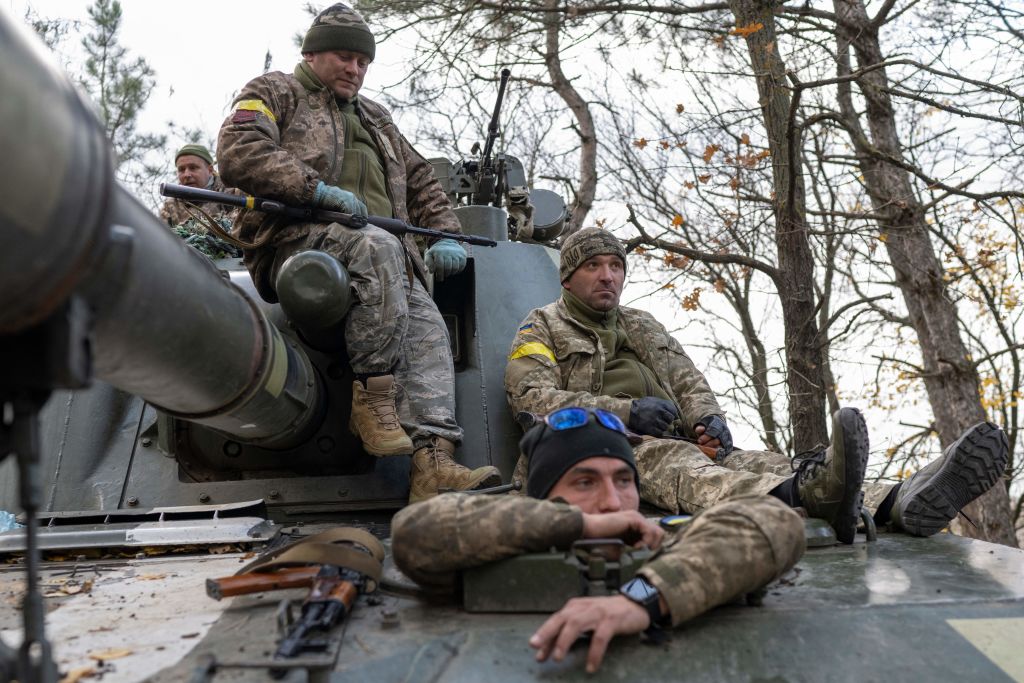Will they stay or will they go? The southern Ukrainian city of Kherson has become the current focus of the toughest fighting in the war, and what was once seen as Moscow’s potential gateway to Odessa and the rest of the Black Sea coast is now looking like Kyiv’s access towards occupied Crimea. However, it is unclear whether the Russians are finally preparing to withdraw from the city.
On the one hand, Russia’s generals have reportedly been petitioning the Kremlin for weeks to be allowed to fall back. As it stands, Kherson is almost impossible for them to defend. It is on the western bank of the Dnipro River, and with the Antonivsky Bridge and the Kherson Rail Bridge heavily damaged, reinforcing and resupplying it is proving difficult and dangerous.
It is clear that Putin has been resisting the militarily sensible but politically embarrassing retreat for weeks, if not months
The Ukrainians, mindful of just how dangerous street-to-street fighting can be, and that the Russians troops dug in could prove hard to dislodge, have largely been contenting themselves with probing attacks, seizing nearby settlements, and relying on accurate long-range bombardment, especially of those supply lines.
The aim has been to induce the Russians to withdraw, and of late it has seemed that this was going to be successful. Civilian administrators have been evacuated, mindful of how the returning Ukrainians would treat quislings, and even the remains of Prince Grigory Potemkin, favourite of eighteenth-century empress Catherine the Great, were removed from their crypt in the city.
The Russian flag has been hauled down from the city’s administration building, checkpoints have been abandoned, and Kirill Stremousov, the Russian-installed deputy governor of the region, said in an interview that ‘most likely, our units, our soldiers, will leave for the left (eastern) bank.’ More broadly, on Friday Vladimir Putin said that civilians ought to be evacuated from the city and nearby districts.
This sounds pretty conclusive, but some Ukrainian sources have been claiming that it is all a cunning ruse. There have been claims of Russian soldiers dressing in civilian clothes and taking up positions in houses ready to ambush oncoming Ukrainians (although this would mean any prisoners would lose the protections of the Geneva Convention). More generally, in the words of Yurii Sobolevskyi, deputy head of the regional council, there are concerns that ‘these actions could be a provocation to lure Armed Forces of Ukraine into a trap’ by inducing Kyiv to drop its guard.
It is certainly true that while some Russian forces have been withdrawing from the city, others – especially from better units – have been arriving. However, a managed withdrawal is one of the hardest manoeuvres successfully to manage in war, and requires seasoned troops to maintain the line while others retreat behind their cover. Such a reshuffle of forces is entirely consonant with a plan to withdraw.
Although this is a war that defies prediction, the odds are, then, that things are as they seem and that Russia plans to abandon the city and instead seek to hold a new defensive line along the eastern bank of the Dnipro. Surrendering Kherson would mean that Ukraine’s artillery would be able to reach some of the Russian’s ground lines of communication from Crimea, but overall this would seem to be able to offer the best chance of stalling Kyiv’s advance for long enough for more units of mobilised reservists to be prepared and deployed.
This clearly will be another victory for Kyiv and another bitter pill for Putin to swallow, after his sham referenda and subsequent claims to have annexed Kherson, along with the Donetsk, Luhansk and Zaporizhzia regions. It will therefore be potentially significant in three main ways.
First of all, Kyiv will use it as part of its continuing efforts to convince its western allies and backers that it is providing – to put it very crudely – adequate return on their billions of dollars, pounds and euros of investment, through both military and economic aid. There is a constant fear in Kyiv of the consequences of any ‘Ukraine fatigue,’ and with the looming prospect that the midterms may change the balance of power in the US Congress. A victory in Kherson will be leveraged for all it is worth.
Secondly, it is clear that Putin has been resisting the militarily sensible but politically embarrassing retreat for weeks, if not months. If he is now willing to accept it, this may suggest that he is finally beginning to abandon trying to micromanage the war and letting the generals, including new overall field commander General Surovikin, do their work. Given how disruptive Putin’s meddling has been for his own forces, this would be bad news for Kyiv.
Finally, it underlines the degree to which the Russians are now seeking not to make further advances – despite some futile continuing attacks along the Donetsk and Lugansk fronts – but instead trying to create a sustainable defensive line. Putin is no longer trying to win the war on the battlefield, but to outlast Ukraine and above all the West.







Comments